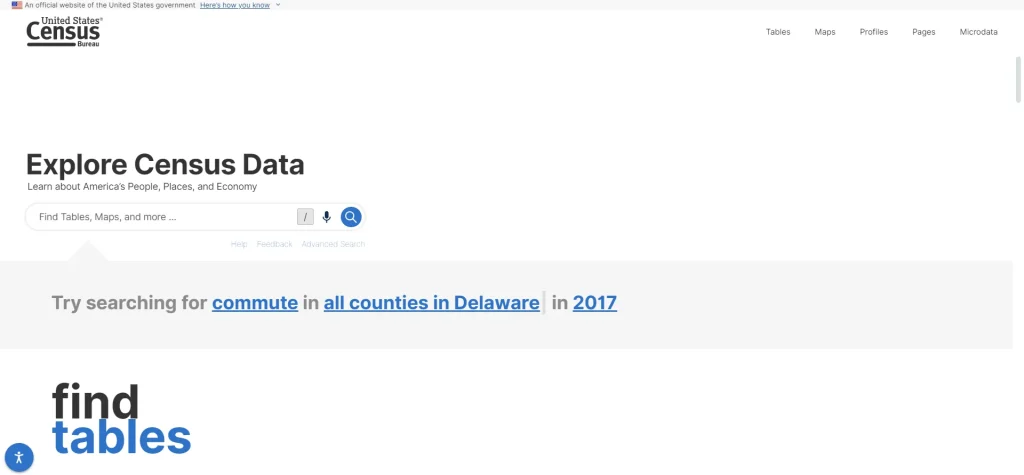Subscribe to the our newsletter to receive latest news straight to your inbox.
How Google Search Results Sorted Frequency Affects You in 2025
20 Best Freelancing Platforms to Find Work in 2025
10 Best Free Landing Page Templates WordPress Users Must Try
Is SEO Worth It for Small Businesses? (Best 11 Reasons)
Top 8 Japanese Social Media Apps You Should Know About
Mastering Email Marketing B2B Lead Generation Strategy
Best 1000 SEO Keywords for Theme Park to Boost Your Visibility
How to Implement Lead Generation Strategies for Real Estate
In Lead Generation strategies for real estate, To thrive in this market, agents/agencies need more than traditional lead generation tactics.

The real estate industry is strongly competitive. To thrive in this demanding environment, agents and agencies need more than traditional lead generation tactics. Innovative approaches are crucial for staying ahead in a market. This blog post explores how to implement innovative lead generation strategies for real estate professionals. From understanding your audience to leveraging digital marketing and networking, these strategies will empower you to stand out and generate high-quality leads.
Understanding Your Audience
Before diving into innovative strategies, it’s important to understand your audience. The real estate market is different, and knowing the demographics and needs of your potential clients is fundamental.
How to research and analyze local demographics effectively?
Researching and analyzing local demographics effectively is essential for any real estate professional. Here’s a step-by-step guide to help you gather accurate and valuable demographic data:
1. Utilize Census Data:

- Official Census Websites: Start with official government census websites. In the United States, data is available on the U.S. Census Bureau website. For other countries, locate the equivalent government agency responsible for census data.
- Specific Demographics: Look for detailed demographic data on population age, gender, income levels, education, and housing trends. These specifics will help you understand the local population better.
2. Utilize Online Tools and Databases
- Social Explorer: Websites like Social Explorer offer interactive maps and reports based on census data. You can compare different demographics over time and across regions.
- Statista: Statista provides comprehensive statistics on various topics, including demographics. It’s useful for gaining insights into consumer behavior, income levels, and market trends.
3. Survey Local Residents:
- Community Surveys: Design surveys tailored to local residents. You can use online platforms like SurveyMonkey to create and distribute these surveys. Ask questions about their preferences, needs, and expectations regarding real estate.
4. Analyze Online Presence:
- Social Media Insights: Social media platforms provide insights into their user demographics. Facebook, for example, offers a tool where you can analyze the demographics of your area’s users.
- Google Trends: Use Google Trends to see what people in your area are searching for. This can give you insights into current trends and interests.
Remember, accurate demographic analysis is an ongoing process. Regularly update your data to stay current with changing trends and evolving community needs and it will enable you to make informed decisions in your lead generation strategies for real estate endeavors.
2. Building an Engaging Online Presence
Strategies for engaging content on social media platforms:
Creating engaging content on social media platforms is essential for capturing your audience’s attention, building relationships, and ultimately, driving real estate leads. Here are effective strategies to create compelling content for your social media channels:
1. Visual Content
- High-Quality Photos and Videos: Invest in high-resolution photos and videos of your listed properties. Visuals are powerful and draw attention.
- Virtual Tours: Create virtual tours of properties. Facebook Live and Instagram Live are excellent platforms for real-time property walkthroughs.
- Infographics: Design infographics that showcase real estate market trends, tips for buyers/sellers, or local area highlights.
2. Interactive Content
- Polls and Surveys: Engage your audience with polls and surveys related to real estate preferences or local community choices.
- Quizzes: Create quizzes about home-buying tips, or interior design styles. Interactive quizzes boost engagement.
3. Educational Content
- How-to Guides: Share guides on topics like “How to Buy a New Home” or “Top 10 Things to Look for in a New Home.”
- Market Updates: Provide regular updates on the real estate market, including interest rate changes, housing market trends, and investment opportunities.
- Legal Insights: Share information about legal aspects of real estate transactions, guiding your audience on important legal considerations.
4. Storytelling
- Client Success Stories: Share success stories of clients you’ve helped. Testimonials and before-and-after photos.
- Personal Stories: Occasionally share personal stories about your experiences in the real estate industry. It adds a human touch to your brand.
5, Engagement Posts:
- Questions and Answers: Ask open-ended questions that invite your audience to share their opinions or experiences related to real estate.
- Caption Contests: Post a funny or interesting image related to real estate and ask your audience to come up with creative captions.
6. Seasonal and Trendy Content:
- Holiday and Seasonal Posts: Acknowledge holidays and seasons with themed posts. For example, “Top 5 Spring Decor Tips” during springtime.
- Trending Topics: Engage with trending topics and hashtags, aligning them creatively with real estate themes.
7, Behind-the-Scenes Content:
- Office and Team Life: Showcase your office culture and introduce your team members. People like to know the faces behind the business.
- Property Renovations: If you’re involved in property renovations, document the process. Before-and-after photos/videos are interesting.
8, Interactive Stories:
- Polls and Questions: Use Instagram and Facebook Stories for polls, questions, and interactive content. It’s a great way to collect opinions and feedback.
- Countdowns and Events: Utilize countdown stickers for upcoming property launches or community events.
Remember in lead generation strategies for real estate, authenticity and relevance are key. Tailor your content to your specific audience, be genuine in your interactions, and stay updated with social media trends to continually refine your content strategy for maximum engagement.
3. Utilizing real estate-focused platforms like Zillow and Realtor.com

Utilizing real estate-focused platforms like Zillow and Realtor.com can significantly enhance your online presence and increase your chances of connecting with potential clients. Here are effective strategies points for leveraging these platforms:
- Optimize Your Profile
- Positive reviews and testimonials on these platforms.
- List Your Properties with High-Quality Content
- Keep your listings up-to-date
- Utilize Premier/Featured Listings
- Respond promptly to inquiries and messages
- Personalize your responses based on the inquiries
- Include virtual tours and videos of your properties.
- Utilize Paid Advertising:
By strategically utilizing these real estate-focused platforms, you can maximize your online reach, engage with potential clients effectively, and showcase your expertise, ultimately leading to increased leads and successful transactions.
4. Leveraging Search Engine Optimization (SEO)
Optimizing website and content for local search terms.
Optimizing your website and content for local search terms is crucial for attracting nearby customers. Read this article for the steps to effectively optimize your website and content for local searches:
5. Implementing Email Marketing
How to build an email list organically?
Building an email list organically involves growing your list naturally without buying email addresses. Here are some effective and ethical strategies to build an email list organically:
1. Create Valuable Content
- Blogs and Articles: Publish informative, relevant, and engaging content on your website regularly. Offer valuable insights to your audience.
- Free Resources: Provide free ebooks, guides, templates, or tools in exchange for an email address. Make sure these resources are genuinely helpful.
2. Opt-in Forms
- Website Opt-ins: Place well-designed and strategically located opt-in forms on your website, preferably on the homepage, blog posts, and landing pages.
- Exit-Intent Popups: Use exit-intent popups to capture visitors who are about to leave your site. Offer them a compelling reason to stay, like a discount or a freebie.
3. Engage on Social Media
- Promotions: Run social media contests or giveaways that require participants to subscribe to your newsletter for entry.
- Regular Posting: Share valuable content on social media platforms to attract your audience. Occasionally promote your email list benefits.
4. Webinars and Events
- Webinars: Host webinars on topics related to your niche. Require participants to register, collecting their email addresses in the process.
- Local Events: If applicable, participate in or host local events. Collect emails from interested attendees.
5. Referral Program
- Incentives: Offer incentives to current subscribers for referring friends. For example, provide discounts, exclusive content, or other perks.
6. Content Upgrades
- In-Depth Guides: Within your blog posts, offer content upgrades specific to the topic. For example, a comprehensive checklist or a bonus chapter in exchange for an email.
7. Interactive Content
- Quizzes and Surveys: Create interactive quizzes or surveys related to your niche. Ask participants to enter their email to view the results.
8. Email Signature
- Signature Links: Include a link to your signup form in your email signature. Every email you send becomes an opportunity to gain a new subscriber.
9. Mobile Optimization
- Mobile-Friendly Forms: Ensure your signup forms are mobile-friendly. Many users access websites via mobile devices.
Building an organic email list takes time and effort, but the relationships you build with engaged subscribers will be more valuable and long-lasting. Remember to always ask permission before adding anyone to your list, and respect their privacy and preferences.
Conclusion
In the busy real estate world, innovation is the key to sustainable growth. Implementing innovative lead generation strategies for real estate isn’t just a choice; it’s a necessity. As we conclude this journey through creative methods covering the real estate industry, remember that things are always changing. Embracing innovation means staying ahead of the curve, understanding your clients deeply, and adapting to their changing needs. By leveraging the power of technology, social media, personalized experiences, and strategic partnerships, you’re not just generating leads; you’re building relationships, building trust, and creating a future where your real estate efforts succeed. Stay innovative, stay client-focused, and watch your real estate business reach new heights.
Recommended Articles
-
Focus and Click: 48 Photography Blog Post Ideas
2 years ago305 views -
9 Most Successful Examples of Business Partnerships
7 months ago82 views -
How AI and Analytics Are Revolutionizing Customer Behavior Insights
8 years ago195 views -
Best 1000 SEO Keywords for Theme Park to Boost Your Visibility
2 years ago372 views -
Understanding the Difference between Team Leader and Manager
6 months ago62 views -
Lead Generation vs Brand Awareness: Understanding the Key Differences
9 months ago228 views
Leave a Reply
You must be logged in to post a comment.















